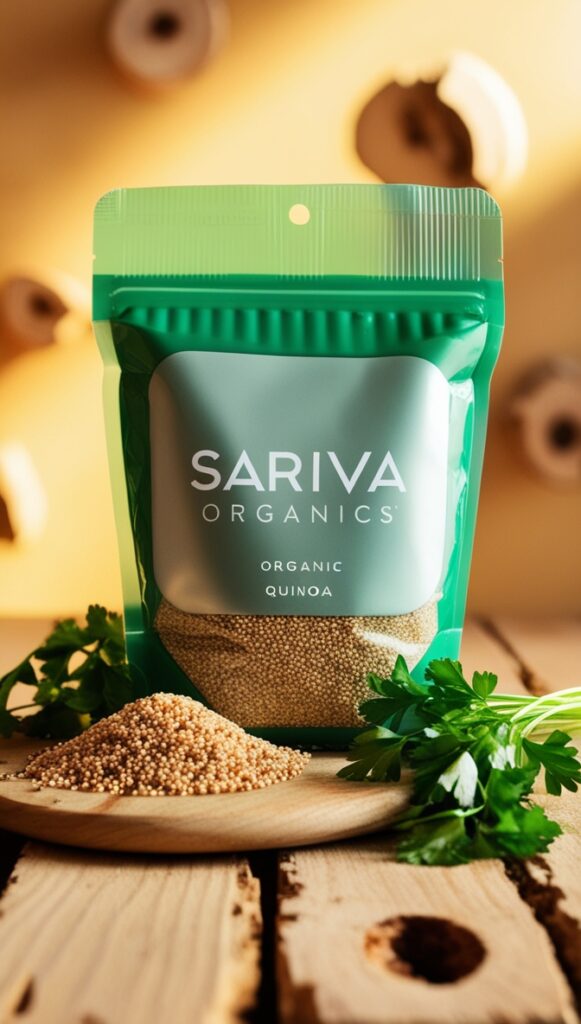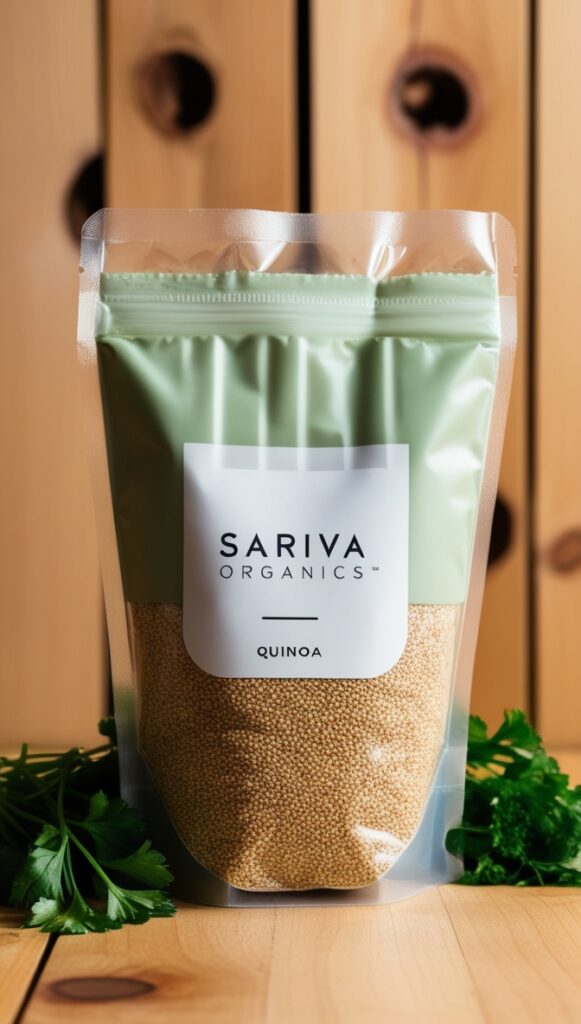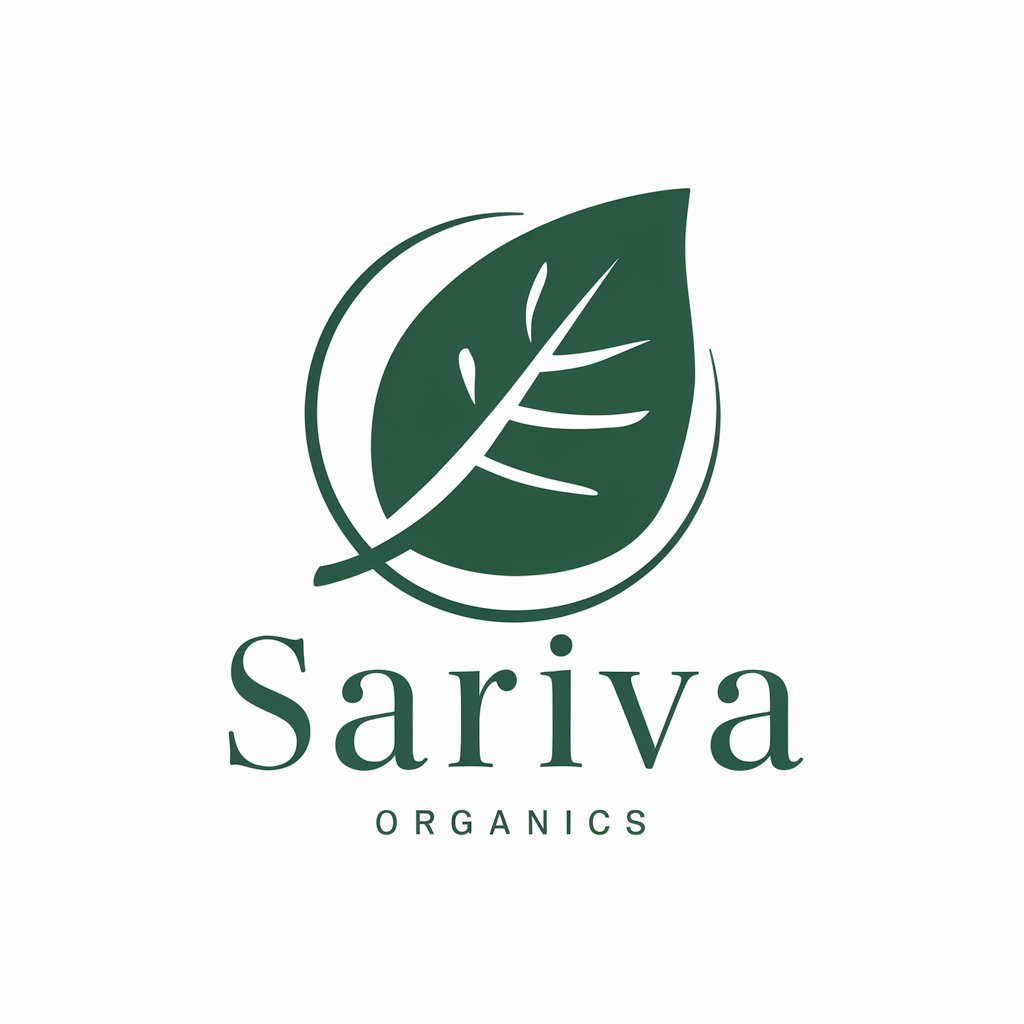I still remember the first time I discovered quinoa. It was during a trip to a local organic market in Gurgaon. I was on a quest to find healthier food options for my family when I stumbled upon this small, grain-like seed that the vendor claimed was packed with nutrients. Curious, I bought a small bag and decided to give it a try. At that time I did not know i was buying a superfood, nor did I know about the Health Benefits of Organic Quinoa.
Little did I know, this humble seed would soon become a staple in our diet.
Quinoa has skyrocketed in popularity over the past few years, and for good reason. Often hailed as a “superfood,” quinoa is renowned for its impressive nutritional profile. It’s a complete protein, meaning it contains all nine essential amino acids that our bodies can’t produce on their own. Additionally, it’s rich in fiber, antioxidants, and a variety of vitamins and minerals. Unlike other grains, quinoa is gluten-free, making it an excellent option for those with gluten sensitivities or celiac disease.
In this blog post, we’ll delve into the incredible health benefits of organic quinoa. From its rich nutritional content to its versatility in the kitchen, you’ll learn why this ancient grain deserves a place in your pantry. So, let’s explore the many reasons to incorporate organic quinoa into your diet and how it can contribute to a healthier lifestyle.
Key Takeaways
- Organic quinoa is a complete protein, ideal for vegetarians and vegans.
- High fiber content aids digestion, blood sugar control, and cholesterol management.
- Rich in antioxidants, quinoa helps reduce inflammation and protect against diseases.
- Quinoa is gluten-free, making it suitable for those with celiac disease or gluten sensitivity.
- Choosing organic quinoa supports health and sustainable farming practices.
What is Quinoa?

Quinoa (pronounced KEEN-wah) is often referred to as a pseudo-cereal because, although it looks and cooks like a grain, it’s actually a seed. It’s a member of the amaranth family and is closely related to spinach and beets. What sets quinoa apart is its high nutritional value, which surpasses that of many traditional grains.
The history of quinoa dates back thousands of years to the Andean region of South America, where it was a staple food for the ancient Inca civilization. The Incas referred to quinoa as “the mother of all grains,” and it played a crucial role in their diet. Today, quinoa is grown worldwide, with significant production in countries like Bolivia, Peru, and the United States.
There are several varieties of quinoa, each with its unique characteristics:
- White Quinoa: The most common and mildest in flavor, white quinoa cooks up fluffy and light.
- Red Quinoa: Known for its slightly chewier texture and nuttier taste, red quinoa holds its shape well after cooking, making it ideal for salads.
- Black Quinoa: This variety has an earthy flavor and a crunchy texture, adding a unique twist to dishes.
- Tricolor Quinoa: A blend of white, red, and black quinoa, this mix offers a combination of textures and flavors, making it a visually appealing and versatile choice.
Health Benefits of Turmeric (Haldi)
Nutritional Profile of Organic Quinoa

Quinoa’s nutritional profile is what truly sets it apart as a superfood. Let’s break down its macronutrients and micronutrients to understand why it’s such a powerhouse.
Macronutrients:
- Protein: Quinoa is a complete protein source, providing all nine essential amino acids. This makes it particularly valuable for vegetarians and vegans. One cup of cooked quinoa contains about 8 grams of protein.
- Fiber: With around 5 grams of fiber per cup, quinoa supports digestive health and helps maintain steady blood sugar levels. High fiber intake is also linked to lower cholesterol and reduced risk of heart disease.
- Healthy Fats: Quinoa contains small amounts of healthy fats, including omega-3 and omega-6 fatty acids, which are beneficial for heart health and inflammation reduction.
Micronutrients:
- Vitamins: Quinoa is rich in B vitamins, including B1 (thiamine), B2 (riboflavin), B3 (niacin), and B6. These vitamins play essential roles in energy metabolism, brain function, and cell repair. It also contains vitamin E, a powerful antioxidant that protects cells from damage.
- Minerals: Quinoa is a great source of minerals such as iron (important for oxygen transport in the blood), magnesium (vital for muscle and nerve function), and phosphorus (essential for healthy bones and teeth). It also provides zinc, potassium, and calcium.
Comparison with Other Grains:
Compared to traditional grains like rice, wheat, and barley, quinoa stands out for its higher protein and fiber content. While white rice offers a minimal amount of protein and fiber, quinoa provides a more balanced nutritional profile. Additionally, unlike wheat and barley, quinoa is naturally gluten-free, making it accessible to a broader range of dietary needs.
In summary, organic quinoa is a nutrient-dense food that offers a wide range of health benefits. Its impressive combination of protein, fiber, vitamins, and minerals makes it an excellent addition to any diet, particularly for those seeking to boost their nutrient intake with a versatile and tasty ingredient.
Health Benefits of Moringa (Drumstick)
Health Benefits of Organic Quinoa

High Protein Content
One of the standout features of quinoa is its high protein content. Unlike most plant-based foods, quinoa is a complete protein source, meaning it contains all nine essential amino acids that our bodies cannot produce on their own. This makes quinoa particularly valuable for vegetarians and vegans who might struggle to get enough complete proteins in their diet.
For those who abstain from animal products, quinoa can help fill the protein gap that might otherwise lead to deficiencies. Each cup of cooked quinoa provides about 8 grams of high-quality protein, making it a fantastic option for building and repairing tissues, supporting immune function, and maintaining healthy skin and muscles. Additionally, the protein in quinoa is highly digestible, ensuring that our bodies can efficiently use these nutrients for optimal health.
Including quinoa in your diet can help you meet your protein needs without relying on meat or dairy products. Whether added to salads, soups, or used as a base for veggie burgers, quinoa’s versatility and protein content make it a valuable addition to a balanced, plant-based diet.
Rich in Fiber
Quinoa is also exceptionally rich in fiber, with about 5 grams per cup of cooked quinoa. This high fiber content plays a crucial role in maintaining digestive health. Dietary fiber adds bulk to the stool, which helps to promote regular bowel movements and prevent constipation. It also feeds the beneficial bacteria in our gut, supporting a healthy microbiome.
Beyond digestive health, fiber in quinoa offers several other significant benefits. It helps control blood sugar levels by slowing down the absorption of sugar into the bloodstream. This can be particularly beneficial for individuals with diabetes or those at risk of developing the condition. By preventing rapid spikes and crashes in blood sugar, quinoa can contribute to more stable energy levels throughout the day.
Additionally, the soluble fiber in quinoa has been shown to reduce cholesterol levels. It binds to bile acids in the digestive system, which are then excreted from the body. This process forces the liver to use more cholesterol to produce new bile acids, ultimately lowering the levels of cholesterol in the blood. By including fiber-rich quinoa in your diet, you can support heart health and reduce the risk of cardiovascular diseases.
Packed with Antioxidants
Quinoa is packed with antioxidants, which are compounds that help neutralize harmful free radicals in the body. Free radicals can cause oxidative stress, leading to inflammation and various chronic diseases, including heart disease, cancer, and neurodegenerative conditions.
Some of the key antioxidants found in quinoa include quercetin and kaempferol. These flavonoids have been extensively studied for their anti-inflammatory, antiviral, and anticancer properties. By reducing inflammation, antioxidants can help mitigate the risk of chronic diseases and support overall health.
Additionally, quinoa’s high antioxidant content helps to protect the body’s cells from damage. This can slow down the aging process and promote healthier skin, as well as improve overall cellular function. Incorporating quinoa into your diet provides a powerful defense against oxidative stress and its associated health issues, making it an excellent choice for long-term wellness.
Gluten-Free
For individuals with celiac disease or gluten sensitivity, finding nutritious and tasty gluten-free options can be a challenge. Quinoa is naturally gluten-free, making it a safe and healthy choice for those who need to avoid gluten. Unlike many gluten-free products that are often highly processed and lack essential nutrients, quinoa is a whole food that offers a wide range of health benefits.
Consuming quinoa can help improve digestive health for those who cannot tolerate gluten. It provides the necessary nutrients without causing the adverse reactions associated with gluten consumption, such as bloating, diarrhea, and abdominal pain. By offering a gluten-free alternative that is rich in fiber, protein, and essential nutrients, quinoa supports overall digestive health and contributes to a balanced diet.
Moreover, the benefits of quinoa extend beyond those with gluten intolerance. Its easy digestibility makes it a great option for people with other digestive issues or those recovering from gastrointestinal illnesses. Quinoa can be included in a variety of dishes, from breakfast porridges to savory side dishes, ensuring that everyone can enjoy its nutritional benefits without compromising their health.
In summary, organic quinoa is a nutritional powerhouse that offers numerous health benefits. Its high protein content makes it an excellent option for vegetarians and vegans, while its rich fiber content supports digestive health and helps control blood sugar and cholesterol levels. Packed with antioxidants, quinoa helps reduce inflammation and fight diseases, and its gluten-free nature ensures it’s safe and beneficial for those with celiac disease or gluten sensitivity. Incorporating organic quinoa into your diet is a simple and effective way to enhance your overall health and well-being.
Health Benefits of Amla (Indian Gooseberry)
How to use Organic Quinoa in Your Diet
Cooking Methods: Boiling, Steaming, Baking
Incorporating organic quinoa into your diet is easy and versatile. Here are some common cooking methods:
- Boiling: The most straightforward way to cook quinoa is by boiling. Rinse 1 cup of quinoa under cold water to remove its natural coating (saponin), which can taste bitter. Combine it with 2 cups of water in a pot, bring to a boil, then reduce the heat, cover, and simmer for about 15 minutes or until the water is absorbed. Fluff with a fork before serving.
- Steaming: Steaming quinoa preserves its nutrients and gives it a fluffy texture. After rinsing, place quinoa in a steamer basket over boiling water, cover, and steam for 15-20 minutes.
- Baking: For a crunchy texture, spread rinsed quinoa on a baking sheet and toast it in the oven at 350°F (175°C) for 10-15 minutes. This method adds a nutty flavor, perfect for salads and snacks.
Easy and Delicious Recipes
Quinoa’s versatility allows it to be used in various dishes. Here are some ideas:
- Breakfast: Start your day with a warm quinoa porridge. Cook quinoa in milk (or a plant-based alternative) with a touch of cinnamon and honey. Top with fresh fruits, nuts, and seeds for added nutrition.
- Salads: Quinoa salads are refreshing and nutritious. Combine cooked quinoa with chopped vegetables, leafy greens, and a simple vinaigrette. Add some feta cheese or beans for extra protein.
- Main Courses: Use quinoa as a base for hearty main dishes. Try a quinoa and vegetable stir-fry, quinoa-stuffed bell peppers, or a quinoa and bean chili.
Tips for Enhancing Flavor and Nutritional Value
- Seasoning: Cook quinoa in vegetable or chicken broth instead of water for added flavor.
- Mix-ins: Enhance the nutritional value by mixing in seeds, nuts, dried fruits, or leafy greens.
- Herbs and Spices: Experiment with herbs and spices like garlic, cumin, turmeric, or fresh herbs like parsley and cilantro to elevate the taste.
Health Benefits of Tulsi (Holy Basil)
Organic vs. Non-Organic Quinoa
Differences in Farming Practices
The primary difference between organic and non-organic quinoa lies in the farming practices. Organic quinoa is grown without synthetic pesticides, herbicides, or fertilizers. Instead, it relies on natural methods such as crop rotation, composting, and biological pest control. Non-organic quinoa, on the other hand, may be exposed to chemicals that can leave residues on the product.
Impact on Health and Environment
Choosing organic quinoa has several health and environmental benefits. Organic farming practices help maintain soil health and reduce pollution of air and water sources. By avoiding chemical pesticides and fertilizers, organic quinoa reduces the risk of ingesting harmful residues, promoting better health outcomes for consumers.
Moreover, organic farming supports biodiversity and helps protect wildlife by avoiding harmful chemicals that can damage ecosystems. By choosing organic quinoa, you contribute to a more sustainable and eco-friendly agricultural system.
Why Choosing Organic Matters
Opting for organic quinoa ensures that you are consuming a product free from synthetic chemicals, supporting your overall health. Additionally, it promotes environmental sustainability by encouraging practices that protect and preserve natural resources. When you choose organic quinoa, you not only benefit your health but also contribute to a healthier planet.
Refined Oils Vs Cold Pressed Oils
Real-Life Success Stories
In my workshops in Gurgaon and community interactions, I’ve heard countless stories of people making the switch to organic quinoa and experiencing remarkable health improvements. One participant shared how incorporating quinoa into her diet helped her manage her blood sugar levels more effectively, leading to increased energy and well-being.
Another community member, a vegetarian, found quinoa to be a game-changer. By adding this complete protein to her meals, she felt more satiated and noticed a significant improvement in her muscle recovery post-exercise. These personal testimonies highlight the positive impact that organic quinoa can have on one’s health.
From my own experience, I’ve observed improved digestion and more stable energy levels since incorporating organic quinoa into my family’s diet. It’s heartening to see others in my workshops share similar benefits. Their feedback reinforces the importance of choosing organic, nutrient-dense foods like quinoa for a healthier lifestyle.
In conclusion, the switch to organic quinoa has been life-changing for many in my community, and I encourage everyone to explore its benefits. Whether you’re looking to improve your health or contribute to a more sustainable environment, organic quinoa is a simple yet powerful addition to your diet.
Conclusion
In summary, organic quinoa is a nutrient-packed superfood that offers a plethora of health benefits. As a complete protein source, it is especially beneficial for vegetarians and vegans, providing all essential amino acids. Its high fiber content supports digestive health, blood sugar control, and cholesterol management. Rich in antioxidants, quinoa helps reduce inflammation and protect against chronic diseases. Being naturally gluten-free, it is an excellent option for those with celiac disease or gluten sensitivity.
Incorporating organic quinoa into your diet is simple and versatile. Whether you boil, steam, or bake it, quinoa can be used in a variety of delicious recipes from breakfast porridges to hearty main courses. Choosing organic quinoa not only benefits your health by avoiding harmful chemicals but also supports sustainable farming practices.
I encourage you to incorporate organic quinoa into your daily meals and experience its health benefits firsthand. Try out a new recipe, experiment with flavors, and share your experiences. Together, we can embrace healthier eating habits and promote sustainable living.
References and Further Reading
- USDA Nutrient Database
- PubMed: Nutritional and health benefits of quinoa (Chenopodium quinoa Willd.)
- FAO: Quinoa’s Potential for Improving Nutrition
- National Institutes of Health: Quinoa and its benefits for celiac patients
- Journal of Food Science and Technology: Antioxidant properties of quinoa
For more tips and recipes, explore our related blog posts on sustainable living and healthy eating.
FAQ Section
1. What are the main health benefits of organic quinoa?
Organic quinoa is a complete protein, rich in fiber, antioxidants, and essential nutrients. It supports digestive health, blood sugar control, and reduces inflammation.
2. How do I cook quinoa?
To cook quinoa, rinse it well, then boil 1 cup of quinoa with 2 cups of water. Simmer for 15 minutes, fluff with a fork, and serve.
3. Is quinoa safe for people with gluten intolerance?
Yes, quinoa is naturally gluten-free and safe for people with celiac disease or gluten sensitivity, making it an excellent alternative to gluten-containing grains.
4. Why should I choose organic quinoa over non-organic?
Organic quinoa is grown without synthetic pesticides or fertilizers, reducing exposure to harmful chemicals and supporting sustainable farming practices that benefit the environment.
5. How can I incorporate quinoa into my diet?
Quinoa can be used in a variety of dishes, including breakfast porridges, salads, and main courses. Experiment with different recipes to find your favorites.
